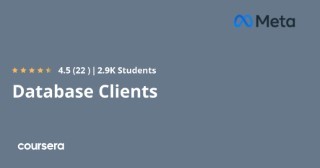MS Access 2013 – Advanced. Master Databases using Access
Learn how to use Microsoft Acces 2013 Advanced – one of the most popular database applications worldwide. This FREE course will supercharge your capability.
This free online Microsoft Access 2013 advanced course, designed for intermediate users will teach you about using master databases. In this course you will learn about Indexes and Movies Database and cover topics that discuss the Datasheet View, Controlling the Display, Advanced Sorting, and Filtering. With this course, you will learn advanced techniques that will help you supercharge your MS Access and database skills.
What You Will Learn In This Free Course
Introduction, Indexes and Datasheet View
In this module you’ll learn about Indexes and be introduced to the Movies Database, and it covers topics such as working with Datasheet View, Controlling the Display and Advanced Sorting, and Filtering in Datasheet View.
Linking Database Tables and ODBC & SQL Server
In this module you’ll learn about Linking Database Tables and ODBC & SQL Server , and it covers topics such as Linking to Other Access Database Tables, Installing SQL Server Express, Setting up a Database, Accessing MDF file, and Linking via ODBC using SQL Server.
Splitting an Access Database and Access Options
In this module you’ll learn about Splitting an Access Database and Access Options, and it covers topics such as Reasons to Split a Database; Splitting a Database to a Front-end and a Back-end; Consequences of the Split; Moving a Database; Adding a Trusted Location; Access Options relating to Multi-user Issues; and Record Locking.
Macros
In this module you’ll learn about Macros, and it covers topics such as Basics of Macros and Properties of Macro Editor, Examples of Macros; Autoexec, Macro Security, Customizing the Quick Access Toolbar and the Ribbon.
Visual Basic for Applications
In this module you’ll learn about Visual Basic for Applications, and it covers topics such as Convert Macro to VBA; VBA Editor Reorganizing VBA Workspace; Developing, Debugging and Running VBA Codes; Modules, Subs, Options Explicit, and Variables; Scope of Variables; and Branch and Loop.
Course assessment
User Reviews
Be the first to review “MS Access 2013 – Advanced. Master Databases using Access”
You must be logged in to post a review.






There are no reviews yet.